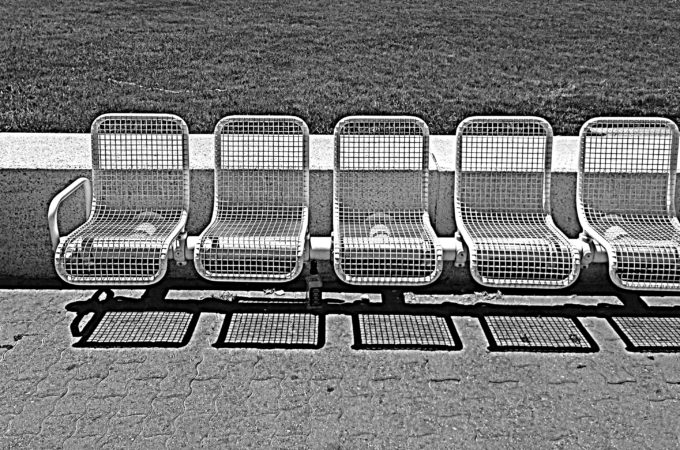Health Quality Ontario, in collaboration with clinical experts, patients, residents, and caregivers across the province, is developing quality standards for care providers in Ontario. I participated in developing the quality standard: Behavioural Symptoms of Dementia: Care for Patients in Hospitals and Residents in Long-Term Care Homes. This quality standard focuses on care for people living with dementia and displaying behaviours of agitation or aggression in an emergency department, a hospital, or in a Long Term Care Home (LTC). It also provides guidance on the care given when a person is transitioned between these settings; for example, when someone is discharged from a hospital to LTC. There are 14 Quality Statements that make up this quality standard. I have highlighted two below:
Quality Statement 8 – Mechanical Restraint: People living with dementia are not mechanically restrained to manage agitation or aggression. This statement is intended to ensure that hospitals and LTC homes have systems, processes, and resources in place to support health care providers in achieving zero use of mechanical restraints for managing agitation or aggression in people living with dementia. Examples include appropriate staffing and access to health care professionals with specialized training.
Quality Statement 13 – Appropriate Care Environment: People living with dementia and symptoms of agitation or aggression whose behavioural symptoms have been successfully treated are transitioned to an appropriate care environment as soon as possible. This statement is intended to ensure that hospitals and LTC homes make available environments that are calm, with minimal potentially disturbing stimuli, to avoid triggering behavioural and psychological symptoms of dementia.
My April 26, 2018 blog, LTCHA Fails to Meet its Mandate for Seniors with Dementia and Responsive Behaviours, described how the behavioural assessment tool used to evaluate prospective LTC admissions focuses on the frequency and types of responsive behaviours over the last three months, but then adds a request to document any concerning behaviours present in the last 12 months. In my clinical experience, the administrative gatekeepers to LTC use these criteria to place an obstacle to the transfer of patients from hospital to LTC, as it deemphasizes any improvement in behaviour that has occurred with treatment in hospital.
Consequently, our acute care hospitals are becoming alternative level of care (ALC) asylums for elderly patients with dementia. Specialized geriatric psychiatry units are few and far between and cannot meet the patient volumes. As a result, most elderly patients with dementia tie up acute care medicine beds in hospitals.
Acute care general psychiatry inpatient units are typically the only locked-in environments in a hospital. However, these units are not set up for the physical care needs of elderly patients with dementia, such as assistance with toileting and showering. These healthcare duties are typically the responsibility of personal support workers (PSW) and not professional staff such as registered nurses (RNs). In years past, hospitals spent exorbitant amounts on PSWs to sit by the patient and try to prevent them from wandering off into trouble. This practice has become unaffordable and most general psychiatry inpatient units do not hire PSWs. Thus hospitals resort to physically restraining patients either in bed or in large specialized chairs with a seatbelt. Prolonged inactivity results in deconditioning, such as decline in mobility, often to the point of permanent immobility.
In order to meet Quality Statement 8 that mechanical restraints be avoided, we need Quality Statement 13 to be met – once behavioural symptoms have been successfully treated, patients should be transitioned to an appropriate care environment as soon as possible. We need LTC Homes to provide better access to care for these patients. All LTC floors should be able to accommodate wanderers with locked units, not just a select unit within a LTC Home. Until there is an adequate supply of LTC beds, hospitals need to develop locked units where the medical and behavioural needs of patients with dementia can be met in an integrated fashion while they wait for LTC.
In my experience, the stress of presenting a patient at a clinical case conference for discharge planning to LTC has become akin to presenting at a Consent and Capacity Board (CCB) hearing. Only the difference is that the CCB is at least open to the evidence and decisions are not predetermined! In hospitals, the tension exists between psychiatric and medical services over who has the responsibility to provide a bed to the patient.
My year end wish is that rather than looking for exclusions to access for care, we start looking for better ways to provide care. The Health Quality Ontario standards are a good start to the conversation and it behooves all caregivers of patients with dementia to familiarize themselves with them.


0 Comments